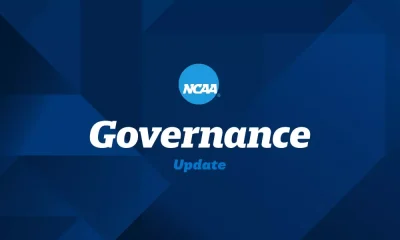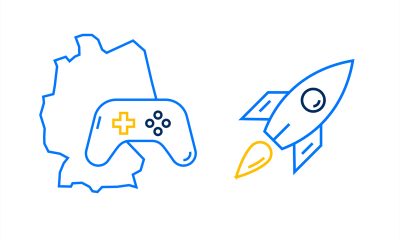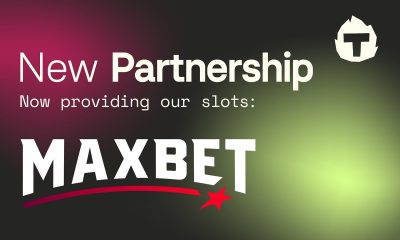eSports
Exclusive Q&A w/ Gary Denham, founder and CEO of Wamba Technologies and Gamer’s Oasis
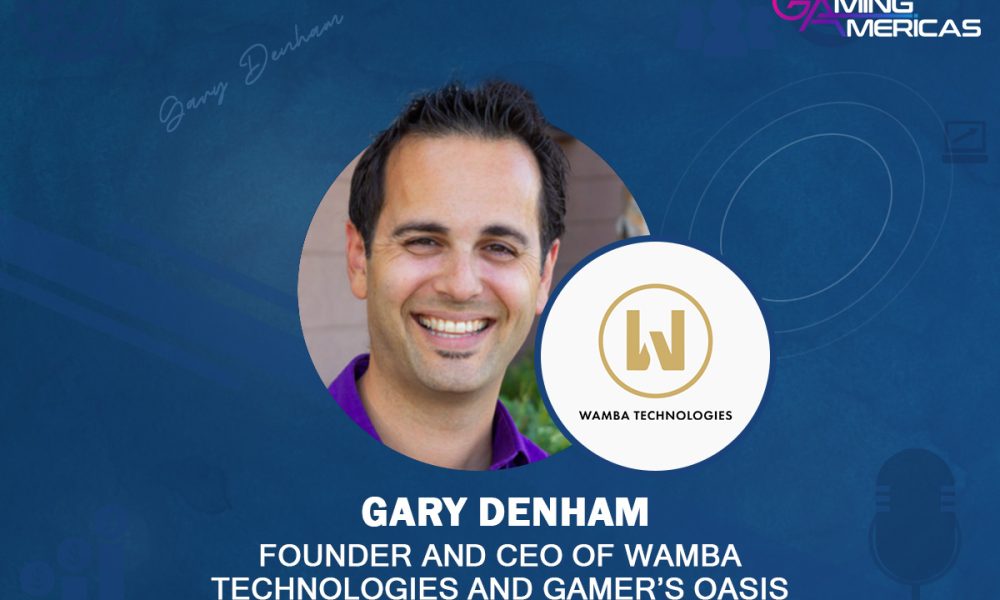
Gary, as the CEO and founder of Wamba Technologies, can you shed some light on the inspiration behind developing the patented technology for “in-game wagering” in skill-based video games?
Right now there are approximately 500 million people around the world participating in Esports. These are people who are earning money by competing in video games. Unfortunately, the vast majority of these people are not competing online when money is involved because of the anonymity and the rampant cheating anonymity causes. Only the best are able to compete online and actually make money. Instead, the majority of gamers are traveling to physical locations and competing “in person” where opponents and skill levels can be verified. What’s crazy to me is that down to every last man, woman, and child, these people DO compete against each other online for fun with the very same games that they are traveling to compete in for money. This shows us that these players desire to compete online, however they just don’t have a safe, user-friendly option with which to do so. This very issue is what inspired us to build a product that will give users that online, “compete-from-my-own-home” experience that they are looking for where they can pay an entry fee online, compete, and win money right then and there.
What’s surprising is that most real money online video game competitions are still operating on the honor system which has led to a lot of cheating. Warzone is a great example of this. Activision had to ban over 100,000 players from Warzone in a single week and they were not even competing for money. That was just the “for fun” play. Simply put, the honor system doesn’t work. For me, the most prominent indicator of this is seeing a marketplace with 500 million users that can’t seem to clear $2B in annual revenue going on 10 plus years now. That says a lot.
Our technology is called Gamers Oasis. It will allow gamers of all skill levels to compete against other players, who are at their same skill level, right from their phones, where they pay an entry fee, compete, and win money back. Gamers Oasis won’t just be for professional players either. Very much to the contrary, the basic idea is that anybody, regardless of skill level, can join, compete, and have a fair and reasonable chance of winning large monetary prizes. Our platform will give beginners the opportunity to compete for thousands of dollars and actually have a reasonable chance of winning, opening up the industry to something that previously was only available to the best of the best, the professionals.
With your extensive experience in the Esports and gaming industry, how do you perceive the current revenue challenges despite the massive user base? What factors contribute to this disparity?
There are a number of reasons for this disparity. Before I answer, I want to point out that there is a comparable industry that has done phenomenally well and has not had to make any excuses for their revenue. Online poker in the United States had a mere 2 million players and was generating $900M a year in the US in 2008. That is compared to our Esports market with 500M players generating a mere $1.38B last year. The global Esports market is 250 times larger than the US online poker market but only generated 50% more money than the poker market. That isn’t just a disparity. That is a tragedy. What is more of a tragedy though is I’ve been to several Esports conferences and most of the people I’ve seen seem to think they’ve accomplished something with these numbers. They are hi-fiving and patting each other on the back with congratulations. Maybe if more of their colleagues would be honest and just speak the truth, which is “hold up there cowboy. These numbers suck. Not only can we do better, but we must. What’s broken?”, then maybe they’d have already taken this market to where it should be. When it comes to players competing for money, developers need to start thinking like wagering entities rather than game development entities. If they had done THAT over the past 10 years, this industry would be a $100B a year industry right now. The good news is with what we are doing, with what FanDuel is doing, and with what others like us are working to do, I think the industry is beginning to find its way onto the right track to getting to where it can get to.
Originally, Esports consisted of single event competitions where players went to an event, paid an entry fee, competed, won their money, and that was it. From the Asteroids world championship tournament in 1980 until 30+ years later, that was Esports! But around 10 years ago, the large developers tried to reinvent the wheel to facilitate online Esports. Rather than sticking with the model that had existed for 30+ years at that point, the model that was proven and that worked, they abruptly tried to make online Esports like an actual sports league, like basketball or football, where players would compete for a season to win prizes at the end of the season rather than at individual events. They were trying to build a model where the professionals played and then audiences watched, and they generated revenue from the audience. While that can be a fine model in some circumstances, unfortunately, the reality is that this model is generating around $2.80 per participant, per year, through ad sales. That just doesn’t compare to that poker model featuring player values at closer to $450 per year domestically and around $205 per player per year globally. In a market where 3 billion people play video games, we want to focus on total inclusion and try to include as many of those players as possible. Whereas the current industry seems to be focused on creating viewers to watch “the best of the best”, we want to create players in everybody. You have to remember, every player is also a viewer. Don’t get me wrong, we will still be streaming everything and focusing on viewers as well, but that’s kind of my point. Our model gets all the same viewers, but exponentially more players at an exponentially more valuable “per player” rate of revenue.
Online poker got it right by featuring hundreds or even thousands of events, every day, fully automated, available 24/7, where the host company charges a fee every time a player buys into a competition. As a result of this model, online poker was generating around $450 per player per year in the United States as compared to the $2.80 per participant per year that the current Esports model is generating. In fact, a company by the name of Skillz followed a model similar to ours and, as a result, generated almost 25% of the global Esports revenue last year despite only having 0.8% of the players. That really says it all right there. That is a terrific real world example of what I am saying.
After 10 years of trying this league-based model for online Esports, game developers need to finally admit that it’s just not working. They need to stand up, say “this failed, and that’s ok. We learned from it”, and then get back to what we know has been proven. It is time to get back to the basics! Back in 1980, when the game “Asteroids” held a world championship tournament, they had the same player turnout as the largest World Series of Poker event in history which happened this year in 2023. More than 10,000 players showed up, in person, from around the globe! Single event tournaments where players pay an entry fee, compete, and can win money back right then and there is what players have always done and is what they want. They don’t want to have to wait 13 weeks to get paid at the end of a season. They don’t want to be forced to travel to compete in a real money tournament. They want simplicity and instant results. If developers will get back to that, utilizing today’s technology to make it online, automated, and available 24/7, they will make exponentially more money and turn this industry around on its head.
How does the introduction of “in-game wagering” capabilities potentially revolutionize the profitability landscape for Esports?
It changes everything. There is nothing else that comes remotely close to generating revenue like this model. If we can cause Esports to achieve comparable results as to online poker, and we can, then we are talking “per player per year” values skyrocketing to the $400 to $500 per year range. Compared to modern successful games clocking in at between $5 – $15 per player per year from ad sales and in-game purchasing, or current Esports values of around $2.80 per participant per year, there’s just no limit to the possibilities once this more profitable option becomes widespread. When games begin realizing the massive difference in returns by adding this feature and having it properly monetized, they will be able to spend a significantly larger amount of money on things that ultimately lead to a better player experience; Customer service, quality control, more aggressive beta testing leading to less bugs on launch, anti-cheating countermeasures which are truly effective, etc. When the difference is this significant, there may come a time where if a game does not feature this capability, it will be very difficult to compete with the quality of games which do due to all of the enhanced capabilities I just mentioned.
In your opinion, what are the ethical considerations when introducing wagering into skill-based video games, especially considering the diverse age demographics of players?
Wagering into skill-based video games has been done since 1980 when Asteroids had their first world championship and more than 10,000 players showed up to compete and hand their entry fees over. From that point in time until now, it has been available to all ages, though sometimes requiring parental consent for those under 16 or 18, depending on the region’s laws.
But when speaking of ethics as it pertains to the diverse age demographics of players, I would have to suggest that ethics do not play a part where age is concerned. Rather, ethics plays a part where skill level is concerned, regardless of age. To address this particular matter, the platform we are designing, “Gamers Oasis,” will match up players based on their skill level to ensure that regardless of your experience you still have a fair and reasonable chance of earning money by competing with us. Whether you are a phenomenal player or just plain out suck at your favorite game, it won’t matter. If we’ve done our job right, both players will have a fair chance of winning big money when competing on our platform. If this is accomplished, then I think we are satisfying all ethical issues here.
To address any concerns with age, kids competing with Esports has been a staple of the sport since its inception. In 2019, 16-year-old Kyle Giersdorf just won $3M competing in Fortnite. I think that the morality of kids competing is something that each family needs to decide for themselves. We live in a society of tech companies that have continuously and increasingly been imposing their vision of morality on the world around them. We want to make sure to stay away from that where this matter is concerned. If you do not want your child to compete, we will have parental safeguards in place to ensure that your wishes are supported and respected. And if you are ok with your child competing, well, we will accommodate that as well.
Esports has seen exponential growth in terms of viewership and participation in the past decade. How do you envision its trajectory in the next 5 years, especially in terms of revenue generation?
There is a lot of chaos where Esports is concerned and this has led to tremendous confusion. With our patent, we have an opportunity to seize a degree of control in this industry. Our desire is not to mold it to our beliefs, but rather to hold the industry true to what we have seen that it wants. Offering league and season based Esports play rather than the single event structure that players had become used to for over 30 years is a really good example of that. So, as we use our patent to get an automated system going where anyone, regardless of skill level, can sign up and enjoy the competition, we expect to see revenue generation going up exponentially throughout the industry as per player value increases alongside this exponential increase in user participation.
Lastly, could you share some insights on how Wamba Technologies plans to collaborate with game developers and Esports organizers to integrate and popularize the “in-game wagering” feature?
We patented the methodology of programming video games so that players could pay an entry fee, compete, and win money back over a computerized network. While we absolutely will offer this “in-game wagering” feature, considering that there are presently around 500 million people who are competing with video games to try and win money in real life, it doesn’t need popularization. I’d say it simply needs visibility.
We will be working with game developers and licensing our patent to them to ensure that more and more games offer this type of competition where players can pay an entry fee online, compete, and win money back. This will help create a degree of consistency across a wide range of games. We intend to eventually put together an advisory board consisting of representatives from the games offering this feature so that we can constantly have our finger on the pulse that is the lifeblood of this industry, the games themselves. We want to work with the developers to ensure that this industry gets to a point where the players are actually worth $400-$500 per player per year or more. Then, we can then focus on taking a significant portion of that money and putting it into things that will ultimately give gamers a better overall experience, things like R&D, security, customer service, anti-cheating, and more.
Esportes da Sorte
Esportes da Sorte celebrates Brazilian culture with Parintins and São João Sponsorships

Esportes Gaming Brasil, the owner of Onabet and Esportes da Sorte, is making its debut at the 58th Parintins Folklore Festival with an interactive project that blends cultural promotion, economic development, and social responsibility.
The brand becomes the first regulated betting operator to offer institutional support to the event, which welcomes around 120,000 visitors and generates BRL 184 million in local economic activity, according to the Amazonas State Government.
This cultural commitment comes on the back of Esportes Gaming Brasil sponsoring 31 São João festivals during June in 27 cities across the Northeast and Southeast regions. This initiative strengthens the brand’s strategy of connecting with the public through the appreciation of Brazilian cultural expressions.
Esportes da Sorte’s focus was creating memorable experiences as each event featured scenography by Pernambucan artist Perron Ramos. Another notable element was the Vila Junina (June Village), a themed area blending traditional elements with interactive experiences. Classic games such as Pescaria da Sorte (Fishing of Fortune), Barraca do Beijo (Kissing Booth), and Argola da Sorte (Ring Toss) bring nostalgia to the festivities.
For the three-day Parintins Folklore Festival starting today, the brand will be energising Parintins with a series of experiences celebrating local culture. These include a panoramic lounge with a special view of the Bumbódromo, the Truck da Sorte — a space combining karaoke and free hydration — as well as a Social Arena installed in the Garantido and Caprichoso neighborhoods, featuring artistic performances, rest areas, free water distribution, and Instagram-worthy spots. Festivalgoers will also be able to get their hands on custom giveaways throughout the festival. All elements of the visual project are inspired by Amazonian art. The graphics feature illustrations by Curumiz, a Parintins-based duo formed by Alziney Pereira and Kemerson Freitas.
Sofia Aldin, CMO of Esportes Gaming Brasil, the group behind the brand commented: “Esportes Gaming Brasil cares passionately about regional values and strengthening Brazilian popular culture. It’s more than simply showcasing our brand, we want to create value for the people who live for events like the Parintins Folklore Festival and the São João festivals. Being part of these events backs our strategy of supporting traditions that drive local economies and celebrate regional identities.”
The post Esportes da Sorte celebrates Brazilian culture with Parintins and São João Sponsorships appeared first on Gaming and Gambling Industry in the Americas.
BETBY
BETBY EXPANDS LATAM FOOTPRINT WITH MOBADOO ESPORTS PARTNERSHIP
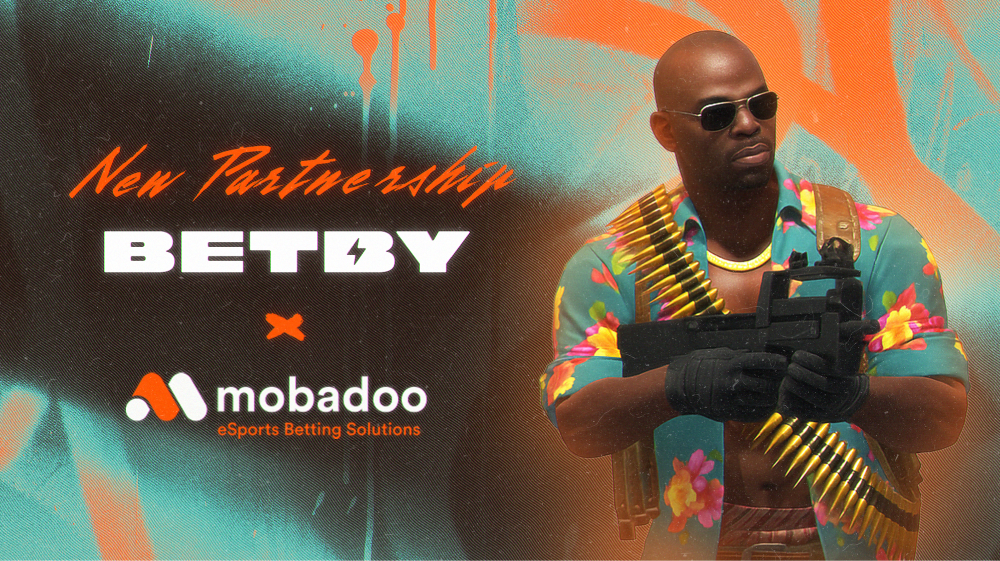
BETBY, a leading sportsbook supplier, has announced a new partnership with prominent LATAM-focused esports provider Mobadoo, in a move that will see its Betby.Games portfolio fully integrated into Mobadoo’s product lineup.
This collaboration enables Mobadoo — which has an established presence and deep market understanding across Latin America — to incorporate BETBY’s proprietary and award-winning esports offering, delivering dynamic and fast-paced betting content to its growing user base. Among Betby.Games’ titles are eSoccer, eBasketball, eFighting, eCricket, eShooter, eHorse Racing, eTennis, and the Brazil-relevant eVaquejada.
As one of the most comprehensive and high-frequency esports betting solutions in the industry, Betby.Games offers access to more than 70 tournaments, over 350 betting markets, and more than 300,000 live matches each month. This collaboration will not only enhance Mobadoo’s offering but also reinforce BETBY’s position as a leading esports supplier in the LATAM region, a key pillar in the supplier’s global expansion strategy.
“Mobadoo has an excellent reputation and strong regional expertise, making them an ideal partner for us. Their commitment to innovation in esports and the rapid growth of this vertical in the region made our partnership only a matter of time,” commented Kirill Nekrasov, BETBY’s Head of Sportsbook Product. “This agreement not only expands the reach of our unique Betby.Games content, but also aligns perfectly with our global strategy of delivering flexible, high-performance esports solutions to next-generation operators. Together, we’re set to further strengthen our leading position in the LATAM region.”
José Aníbal Aguirre, Chief Marketing Officer at Mobadoo, added: “We’re thrilled to integrate Betby.Games into our offering. The depth and quality of their esports content is unmatched, and this partnership gives us a powerful new edge in catering to LATAM’s passionate esports fanbase. With BETBY’s support, we’re confident we can elevate the player experience and unlock new growth opportunities across the region.”
The post BETBY EXPANDS LATAM FOOTPRINT WITH MOBADOO ESPORTS PARTNERSHIP appeared first on Gaming and Gambling Industry in the Americas.
eSports
Red Bull Home Ground Heads to New York this November
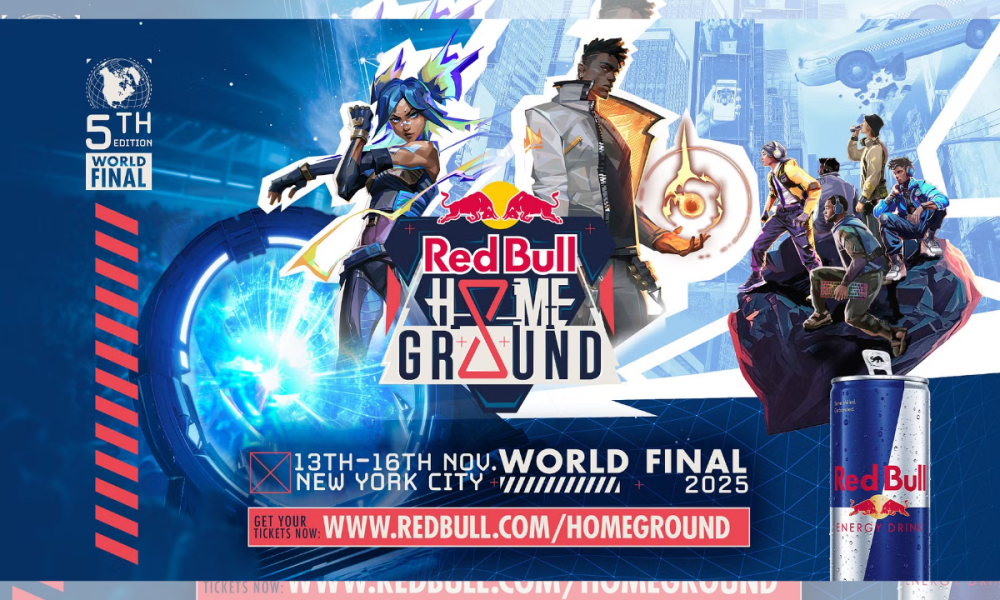
Red Bull Home Ground, the pro VALORANT invitational, is set to make its return with a blockbuster fifth edition, bringing together the world’s top teams to New York City, for one of the most exciting showcases in the esports calendar. From November 13–16, the iconic Hammerstein Ballroom at the Manhattan Center will host four electrifying days of competition, as global giants and rising stars fight to claim the title of 2025 off-season champions.
This year, Red Bull Home Ground will feature a stacked lineup of elite contenders. Returning champions T1 are ready to defend their crown, joined by two-time VCT Global Event winners Fnatic and fan-favourites G2 Esports, Sentinels, and ZETA DIVISION. Joining these giants will be the two top teams who earn their place through the Play-In Stage and an additional team to be revealed – a gauntlet of global qualifiers open to all in India, USA, Spain, Turkey, Chile, Egypt, Belgium, Germany, South Africa, Netherlands, Japan, and EMEA qualifiers, giving players around the world the chance to earn a spot to go against the best-of-the-best on the main stage. The final main stage slot will be revealed at a later date.
For the first time, the Red Bull Home Ground World Final will be hosted in the United States, taking place at the legendary Hammerstein Ballroom in Manhattan. Known for its grand Beaux-Arts architecture and storied history hosting icons like The Grateful Dead and Guns N’ Roses, the venue offers a perfect blend of classic New York legacy and modern spectacle for this high-stakes tournament. The action kicks off on November 13-14, with both days dedicated exclusively to the Play-in stage and the opening stages of the competition. For fans eager to experience the action live, tickets for the public main stage event on November 15-16 are available for purchase via Ticketmaster.
At last year’s Red Bull Home Ground in Berlin, fans were treated to an unforgettable grand final as T1 stormed to victory over Cloud9, clinching the championship title with a dominant 3-1 series. With every edition, Red Bull Home Ground has elevated the VALORANT off-season calendar, known for its fast-paced format, jaw-dropping plays, and international flair. Red Bull Home Ground continues to be a staple tournament for pro teams looking to compete against the best competition and for fans ready to witness thrilling match-ups.
The post Red Bull Home Ground Heads to New York this November appeared first on Gaming and Gambling Industry in the Americas.
-

 Australia7 days ago
Australia7 days agoVGCCC: Minors Exposed to Gambling at ALH Venues
-

 Croc’s Lock7 days ago
Croc’s Lock7 days agoFBM® unveils golden treasures in Mexico with Croc’s Lock™ bites
-

 Africa7 days ago
Africa7 days agoSA Rugby Renews its Partnership with Betway
-

 Central Europe5 days ago
Central Europe5 days agoGerman Federal Government Significantly Increases the Budget for Games Funding
-

 Eastern Europe6 days ago
Eastern Europe6 days agoThunderkick enhances presence in Romania through MaxBet partnership
-

 BETBY6 days ago
BETBY6 days agoBETBY EXPANDS LATAM FOOTPRINT WITH MOBADOO ESPORTS PARTNERSHIP
-

 Compliance Updates7 days ago
Compliance Updates7 days agoHonolulu Mayor Signs New Laws Targeting Illegal Game Rooms
-

 Africa6 days ago
Africa6 days agoBetKing Delivers Healthcare Services and Nutrition Support to Underserved Nigerian Communities






